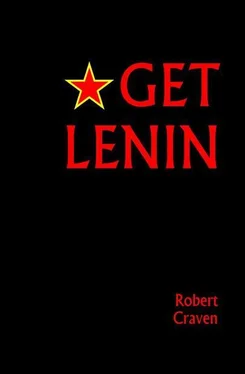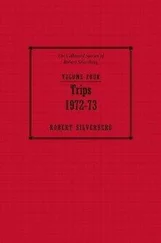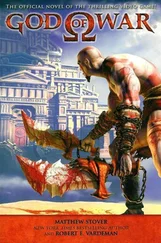Robert Craven - Get Lenin
Здесь есть возможность читать онлайн «Robert Craven - Get Lenin» весь текст электронной книги совершенно бесплатно (целиком полную версию без сокращений). В некоторых случаях можно слушать аудио, скачать через торрент в формате fb2 и присутствует краткое содержание. Жанр: Триллер, на английском языке. Описание произведения, (предисловие) а так же отзывы посетителей доступны на портале библиотеки ЛибКат.
- Название:Get Lenin
- Автор:
- Жанр:
- Год:неизвестен
- ISBN:нет данных
- Рейтинг книги:3 / 5. Голосов: 1
-
Избранное:Добавить в избранное
- Отзывы:
-
Ваша оценка:
- 60
- 1
- 2
- 3
- 4
- 5
Get Lenin: краткое содержание, описание и аннотация
Предлагаем к чтению аннотацию, описание, краткое содержание или предисловие (зависит от того, что написал сам автор книги «Get Lenin»). Если вы не нашли необходимую информацию о книге — напишите в комментариях, мы постараемся отыскать её.
Get Lenin — читать онлайн бесплатно полную книгу (весь текст) целиком
Ниже представлен текст книги, разбитый по страницам. Система сохранения места последней прочитанной страницы, позволяет с удобством читать онлайн бесплатно книгу «Get Lenin», без необходимости каждый раз заново искать на чём Вы остановились. Поставьте закладку, и сможете в любой момент перейти на страницу, на которой закончили чтение.
Интервал:
Закладка:
The months drifted slowly and she watched herself appear more life-like as Theo developed and honed his skills on paper and canvas. Crude charcoal outlines disappeared; shadowing and light became more subtle until he produced a piece unlike anything else he had done.
He had captured her perfectly; Eva was lying naked on the floor, her legs together twisting away from her torso, one arm draped across her breasts, the other arm behind her, spilling lush auburn tresses. It was if she was caught in mid-leap across the sugar paper. He had fashioned a smile on her features, telling her that when she did so, which was rarely, she was a radiant. He opened a bottle of wine and, for the first time in a year, she smiled briefly and Theo was duly mesmerised.
On an impulse, she accompanied him to his bed at the rear of the studio as he took her hand, but the dark edges still hung about her peripheral vision despite his gentle attentive efforts.
‘You know, Eva,’ he said, an ashtray resting on his chest as they shared a cigarette in the tiny metal bed, ‘you should try for the movies. They have a film unit in the university. They’re always looking for actors and actresses.’
She exhaled with one eyebrow raised and a sceptical moue. Smiling, he swept his hand around the room. Eva hadn’t looked around it much. Across every wall pictures of her were pinned up — nude, clothed, sitting, lying, posing, and head and shoulder portrait studies. In every one of them her eyes had a haunted quality, the last and most beautiful image of her at her most wistful.
He stubbed out his cigarette and rose to dress,
‘With your grace, beauty and theatrical training, Eva, it’d be academic you'd have no problems being accepted. I know some of the film students; I could introduce you.’
Chapter 3
That summer she travelled to Paris with Theo and Dariusz Spzilman, a film student that he shared digs with. 1930s Paris was a Mecca for Theo, the epitome of art and beauty, for Dariusz, the centre of film.
Theo’s French was rudimentary and Dariusz’s non-existent. They needed a translator and Eva agreed to accompany them. They took a two-bed cold water apartment in La Pigalle, Eva with a room to herself, the men sharing a room with two single beds. Her room was more of a corner garret, cramped and warm, the bed a recovered hospital cot, robust and basic. The wardrobe contained a few new dresses and her prized blue raincoat Henk and Aga had bought for her before her departure. All three would swim in the nearby public pool every day to perform their ablutions. Theo, armed with his notebooks and charcoals, managed to persuade most of the men to allow him to sketch them while drying themselves, some taking the sketch in exchange for a cigarette, but never for cash, at his insistence.
One late summer afternoon, Theo and Dariusz posed theatrically at the top of the Eiffel Tower as they pointed out landmarks over the shimmering roofs of Paris, the wind catching their hats. Eva, snatching Dariusz’s precious camera, squeezed off a shot of the men. It developed perfectly and she pinned it to the cracked and faded mirror on her battered dresser in her room. The other pictures, now creased and faded, were of Henk and Aga, and of her deceased parents, Maria and Pytoir, with Eva as a grim-faced toddler. Below them was a picture of a smiling Jonas. Every morning when applying her make-up, she would touch the photograph tenderly and reminisce.
Eva’s idea of heaven was getting lost in the numerous bookstores around the city, wrapped in her trusty blue raincoat, when the men were off drinking. Theo, walking in the footsteps of his hero Toulouse Lautrec, would frequent the bordellos, restaurants and his drinking haunts that peppered the city.
By night they would gather at the Cafe Procope on Rue Buci with their French counterparts, the hours spent discussing cinema, philosophy and politics over simple food and carafes of wine. Eva had to grasp the language quickly as the debates got heated and found she could, becoming more often than not the referee.
Theo, perhaps caught up in the zeitgeist, announced he was a Communist, content with his bohemian lot and, as a reflection, his art became more de-structured and free-flowing. He stopped using colour, developing a tonal two and three tone style. Refusing to purchase picture frames, he set up a scrap wood stall along the Pont Notre-Dame with the sketches pinned and fluttering in the breeze.
He squandered his allowance from his father in reckless abandon. Purchasing a bicycle, he travelled around the city, his long thin legs pumping the pedals in determination, his free arm clutching his materials. For her birthday he bought Eva a camera, a simple box brownie, and she thrived on travelling around the city alone by foot, bus and metro, capturing it. Dariusz had built a dark room in the apartment and he allowed her time to learn how to develop pictures in between his projects. Theo had paid for all of the wood from his father's allowance, helping Dariusz to haul the lumber up the flights of rickety stairs and hammering the whole thing together. The apartment’s window remained open most of the time after that owing to the smell of the processing chemicals.
Eva's wanderings gave her a new fulfilment, making her aware of not only her own beauty but the beauty of the city and its people. She would buy all her of dresses from the flea markets and slowly she began to eat again, filling out and regaining her superb figure. The summer nights were balmy and the bright lights of the city somehow soothing. She truly loved Paris, loved being anonymous amid its streets. Theo would smile appreciatively, charcoal poised over paper as she undressed when Dariusz was out of the apartment haunting a cinema somewhere.
Theo would sit at the cafes sketching the passing population, waiters, waitresses and patrons. Among his drawings was a quick free-flowing sketch of Samuel Beckett who one evening sat and discussed the films and style of Sergi Eisenstein with the group. Eva’s English helped the Pole expand on his theories with the Irishman despite the time lag between the effusive Dariusz and the measured responses of Beckett. With Theo’s quick execution, Beckett appeared all twisted and bent like a crow dashing across the page. He told them he’d be back, but was departing for Germany to report on the rise and the abuses that the new Reich was perpetrating. Kissing Eva’s hand gallantly, Beckett asked her to visit Ireland sometime. Smiling back warmly, she promised she would.
Eva loved to photograph the twilight, a time of the day when the darkness around her vision seemed the most bearable, where the shadows blended rather than clashed with the available light. Beside Daruisz's reels of film, hung Eva’s first images of the city; the carousels of Sacre Coeur, the city's bridges, and the museums, all captured in a moment in black and white. Sometimes she would photograph an empty street, or a square just after a rain shower. She captured the storefront lights glistening on the ground, reflected back on the puddles. She photographed the mausoleums of Pere Lachaise, wandering amid the graves allowing her thoughts to drift firstly to her parents, then to her happy childhood, and then to Jonas. When alone, she believed Jonas was near, his presence almost within touching distance, a finger-tip away. The feeling would go as quickly as it had appeared, but while it was there she felt his presence as a guardian angel.
Eva began to pin her photographs around the apartment using them to cover damp patches or unsightly stains. Both Dariusz and Theo agreed she had a good eye for a picture. Her favourite image was of a mature Madame who ran a local bordello, Yvette.
Eva had struck up a conversation with her one night in a cafe in Montmartre. She had an iron frailty about her that drew Eva. Yvette was buxom, with lush black hair pinned up as best as the pins could do, and modestly attired in tasteful shades of purple and black. Her eyes were green and knowing. She warmed to Eva immediately and agreed to be photographed. The photograph showed Yvette sitting at a table in a cafe looking out onto the street, a cigarette in an ashtray and a half empty coffee cup before her. Somehow Eva had caught the vibrant light in her green eyes as she smiled.
Читать дальшеИнтервал:
Закладка:
Похожие книги на «Get Lenin»
Представляем Вашему вниманию похожие книги на «Get Lenin» списком для выбора. Мы отобрали схожую по названию и смыслу литературу в надежде предоставить читателям больше вариантов отыскать новые, интересные, ещё непрочитанные произведения.
Обсуждение, отзывы о книге «Get Lenin» и просто собственные мнения читателей. Оставьте ваши комментарии, напишите, что Вы думаете о произведении, его смысле или главных героях. Укажите что конкретно понравилось, а что нет, и почему Вы так считаете.











